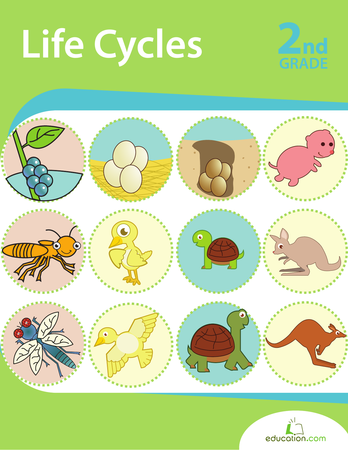Subtopics:
2nd Grade Life Science Workbooks
About 2nd Grade Life Science Workbooks
On Education.com, parents and teachers can access a variety of educational materials including printable worksheets, interactive lesson plans, and hands-on activities focused on 2nd grade life science concepts. These resources help students explore topics such as plants, animals, ecosystems, and the characteristics of living things through engaging exercises. By providing structured activities, Education.com supports foundational science learning and curiosity in young students. This collection makes it easy to supplement classroom instruction or create at-home learning experiences that reinforce science skills.
Explore a range of nutrition, growth, and habitat-related worksheets tailored to 2nd graders. These incorporate multi-step experiments, reading comprehension, and observation exercises that deepen understanding of living organisms. Supporting lessons include plant identification, animal classification, and structure-function relationships. These resources help children build observation, critical thinking, and scientific reasoning in an accessible way.
Discover printable activities that make learning about life sciencefun and interactive. Incorporate real-world scenarios, teaching pacing, to enhance students’ skills in distinguishing living from nonliving, recognizing animal adaptations, or understanding human interactions with nature. Educators and parents can quickly access ready-to-use materials that foster love of science while providing meaningful learning opportunities.
Explore a range of nutrition, growth, and habitat-related worksheets tailored to 2nd graders. These incorporate multi-step experiments, reading comprehension, and observation exercises that deepen understanding of living organisms. Supporting lessons include plant identification, animal classification, and structure-function relationships. These resources help children build observation, critical thinking, and scientific reasoning in an accessible way.
Discover printable activities that make learning about life sciencefun and interactive. Incorporate real-world scenarios, teaching pacing, to enhance students’ skills in distinguishing living from nonliving, recognizing animal adaptations, or understanding human interactions with nature. Educators and parents can quickly access ready-to-use materials that foster love of science while providing meaningful learning opportunities.



